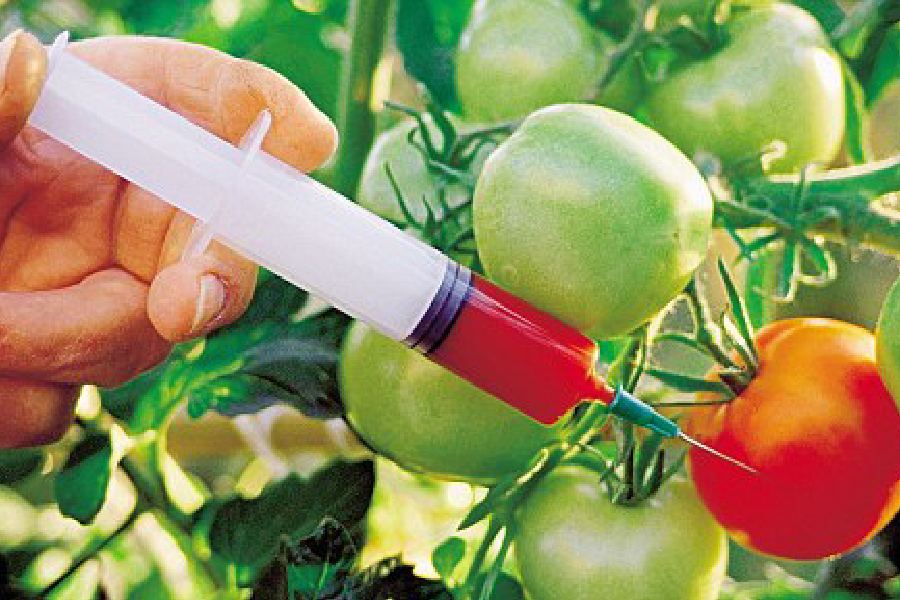The Centre on Thursday defended in the Supreme Court the field trials of genetically modified (GM) crops to contain the massive import bills and make available food products including edible oil at cheaper prices to the citizens.
The Centre told the apex court: “The present trial and, if the trial is successful, subsequent production will have a direct bearing on the dependency on import of this basic food commodity (edible oil) and will have a direct and inevitable bearing on the prices at which citizens of this country will be able to procure this food commodity. The consumption is going to continue irrespective of whether the oil is manufactured in India or imported from other countries.... It is doubtlessly the fundamental rights of the citizens to get edible oil at economic prices if grown and manufactured in India.”
The assertions were made in the form of written submissions by solicitor-general Tushar Mehta appearing for the Centre in response to two PILs filed by environmental activist Aruna Rodriguez and NGO Gene Campaign, opposing field trial of GM crops and suggesting at best to do the test and trial in a confined atmosphere for research and educational purposes.
“Union of India is committed to increasing farm productivity and the income of farmers through development of low input-high output agriculture and making the country self-sufficient in edible oil and grain legumes. Strengthening of plant breeding programmes including the use of new genetic technologies such as GE Technology is critical for meeting emerging challenges in Indian agriculture and ensuring food security while reducing foreign dependency,” the Centre told a bench of Justice B.V. Nagarathna and Justice Sanjay Karol during a hearing.
According to the Centre, an elaborate statutory scheme exists to ensure effective regulatory review for the research, development and commercial use of GE technologies.
The petitioners among other things had alleged that even the apex court, which had in 2012 constituted a technical expert committee to examine in detail the matter of genetically modified crops in India, stoutly opposed the herbicide-tolerant (HT) and GM crops and suggested their ban.
According to the petitioners, the TEC had concluded that the HT crops are “unsustainable” and “unsuitable” for India. It noted that the herbicide sprayed on HT crops caused cancer. It had said that the non-GMO alternatives were available in the country and recommended a “total ban” on all HT crops on “precautionary principle” as no long-term safety studies were done on the impact of edible GM crops in India on human health, animal health and biodiversity.
The Centre, in a veiled attack on the PIL petitioners, said: “There are certain elements sponsored by those who are importing tonnes of the same edible oil into India and do not want India to be self-sufficient and self-reliant in production of this basic food ingredient used by the common man. It is impossible to conduct trials in a laboratory and the petitioner is fully aware of this. Any experiment with regard to newly grown crops can only be done in an open field.”
According to the government, there are only eight places where this experiment can take place under controlled circumstances and strictly as per the statutory regime already in place.
“There is no alternative to conducting trials in the open field of approximately 600sqm per location. Out of the eight such sites of 600sqm each, the experiment had already started in six of them and the seeds were sown during Rabi season 2022-23. This was the stage at which the assurance was given that nothing further will take place,” the Centre told the court.
Mehta, during the hearing on Thursday, told the court that mustard is the most important edible oil and seed meal crop of India and approximately 55-60 per cent of edible oil in India is imported.
“Strengthening of plant breeding programmes including the use of new genetic technologies such as GE Technology is critical for meeting emerging challenges in Indian agriculture and ensuring food security while reducing foreign dependency,” the solicitor-general said.
He told the court that the total edible oil demand of India is 24.6 million tonnes (2020-21) with domestic availability of 11.1 million tonnes (2020-21). In 2020-21, 13.45 million tonnes (54 per cent) of India’s total edible oil demand was met through imports worth about Rs 1,15,000 crore, which includes palm oil (57 per cent), soybean oil (22 per cent), sunflower oil (15 per cent) and a small quantity of canola-quality mustard oil. In 2022-23, 155.33 lakh tonnes (55.76 per cent) of the total edible oil demand in the country was met through import.
Mehta argued that India was importing and consuming a large quantity of edible oil from GM oilseeds. India imports about 55,000 MT of canola oil largely from GM canola seeds. Similarly, nearly 2.8 lakh tonnes of soybean oil is being imported annually. Most exporting countries such as Argentina, the US, Brazil and Canada cultivate GM soybeans. Globally around 80 per cent of soybean growing is of the GM variety.
“As India is importing and consuming oil derived from GM crops, opposition to such technology based on such unfounded fears of adverse impact is only hurting farmers, consumers and industry,” the government’s top law officer said.











